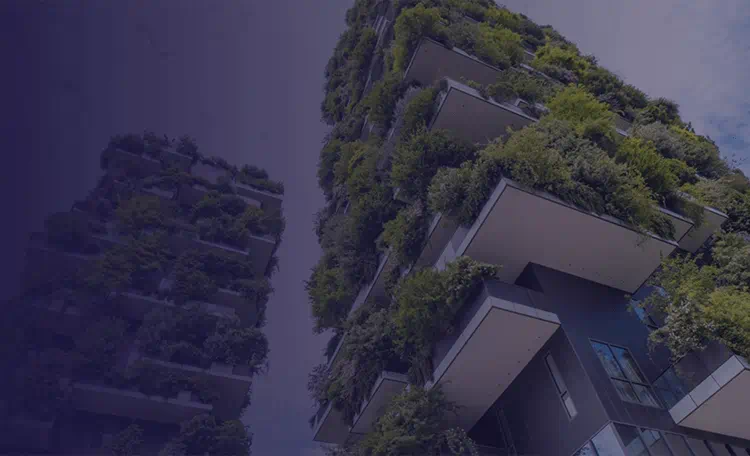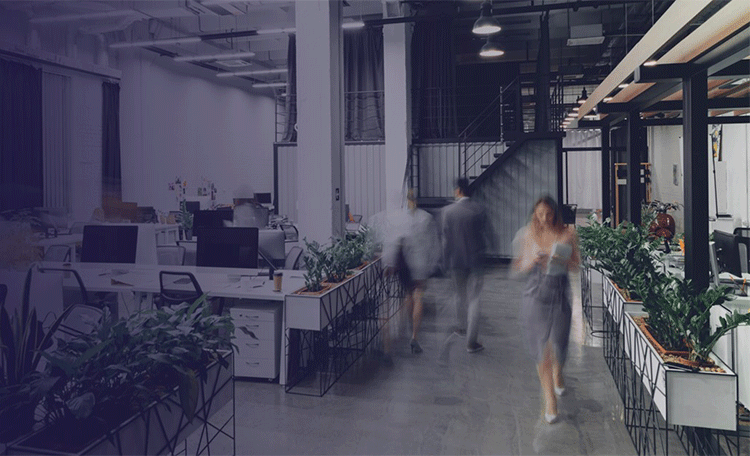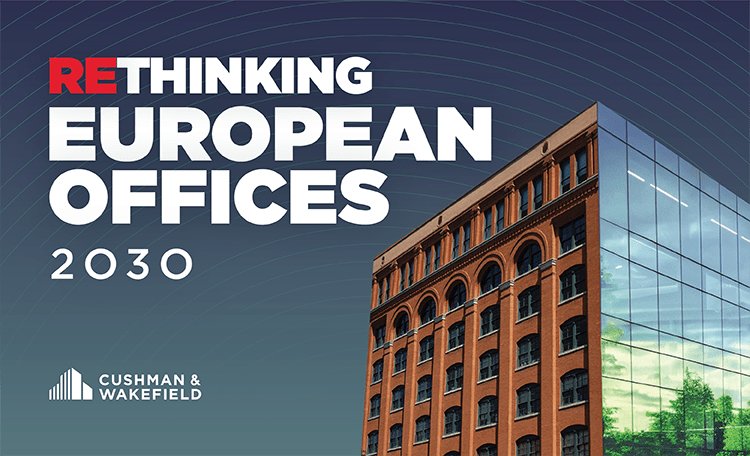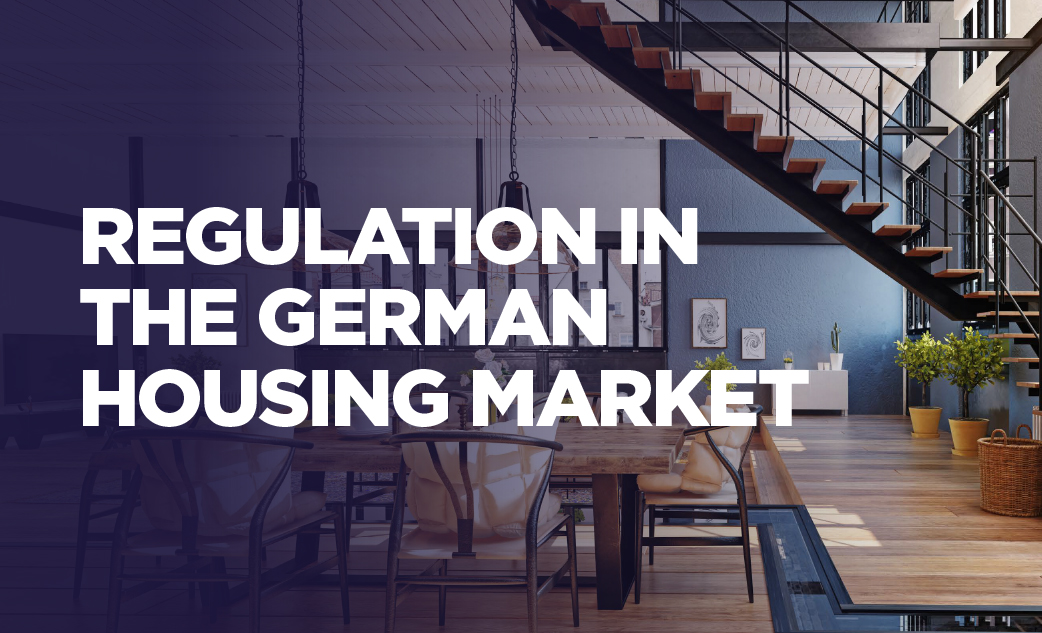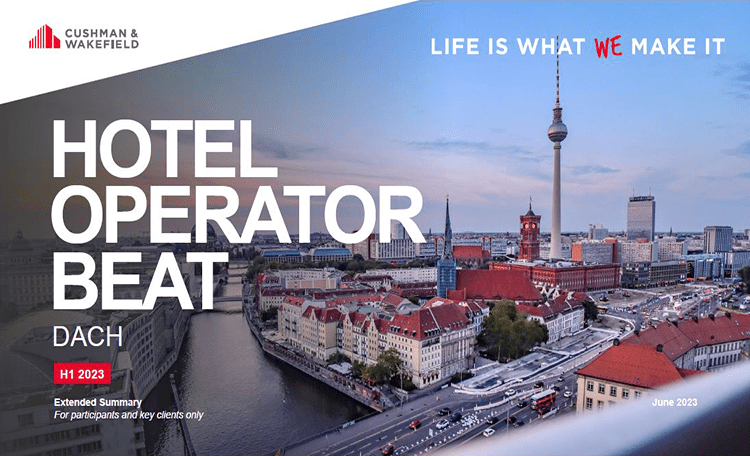Düsseldorf‘s office letting market recorded total take-up of 270,000 square metres in 2020. Compared with the record setting 2019, take-up has thus almost halved; measured against the five-year average, the decline is 35 percent. In the commercial real estate investment market, international real estate consultancy firm Cushman & Wakefield recorded a decline of 14 percent to a total investment volume of around €3.4 billion, which is the third-highest ever despite the pandemic.
The Düsseldorf office market saw fourth quarter take-up of around 46,000 square metres, ending 2020 with the weakest final quarter ever. "Unfortunately, the hoped-for turnaround failed to materialise via the year-end spurt and, due to the renewed lockdown, the numerous companies’ levels of uncertainty have increased again," explained Luisa Rotthaus, Branch Manager and Head of Office Agency in Düsseldorf at Cushman & Wakefield, and continued: "Nevertheless, there were also positive signs in Q4: The number lettings increased again compared to the third quarter, and market activity was particularly strong in the small-space segment,". Companies with larger space requirements are acting more cautiously overall and are observing the market conditions more closely, which is why there were very few large-scale lettings. "The first lockdown set the course towards working from home for numerous companies; future space requirements and the choice of office concept will now be analysed and tested more intensively during the second lockdown. Provided the vaccination roll-out goes well and the pandemic situation recedes by the middle of the year, we expect a better annual result for this year than 2020," concludes Luisa Rotthaus.

Small-to-medium-sized lettings dominate
The weak take-up in the final quarter was also due to the lack of large lettings of over 5,000 square metres. The largest was to Deutsche Glasfaser Holding who leased around 4,250 square metres of office space in the Airport City submarket. Compared to the third quarter, the number of leases signed rose, particularly for small office spaces of up to 500 square metres. Almost a third of all leases were in this size category. The largest letting of the year remains the leasing of 33,500 square metres in the City East submarket by the Oberfinanzdirektion (regional finance office), followed by ThyssenKrupp Elevator AG with around 9,100 square metres in the North submarket. Overall, 2020 remains a year of few major deals. There were only six lettings of more than 5,000 square metres, compared with twenty the previous year.
Prime office rent static, average rent declining slightly
At the end of the fourth quarter, the achievable prime office rent was € 28.50 per square metre and month in the Central Business District (CBD) submarket. This means that the prime rent has remained at a consistently high level since the second quarter.
The weighted average rent for the past 12 months is currently € 15.32 per square metre per month. Compared to the previous year, this represents a decline of around eight per cent and is primarily due to the low-er number of high-priced large area lettings in high-quality properties and locations.
Brisk construction activity with high preletting rates
In 2020 a total of around 136,000 square metres of office space was completed, around 40,000 square metres more than in the previous year. In 2021, completion volume is expected to be at a similarly high level, at just under 126,000 square metres. The still high preletting rates of around 76 percent are remarkable, so that only a good 30,000 square metres of office space is available for leasing.
The vacancy rate at the end of the year is just under 7.0 per cent and has increased slightly compared to the previous year. Overall, the total amount of available office space increased by about four percent to around 647,000 square metres.
Düsseldorf investment market with strong final quarter
The Düsseldorf investment market achieved a total commercial real estate transaction volume of around € 3.4 billion in 2020. Although this represents a decline of around 14 percent compared to the previous year, the Düsseldorf investment market was fairly unperturbed by the pandemic. Particularly in view of the fact that some transactions were postponed or delayed during the first lockdown, the market is showing strong momentum. Office properties remain the most popular asset class among investors, accounting for almost 86 percent of total investment volume.
In the fourth quarter commercial real estate transaction volume once again just exceeded the € 1 billion mark and thus almost matched the strong result achieved at the beginning of the year. Here, the individual trans-actions of three office properties, each with a sales price of over € 100 million had a particularly positive impact.
"It was foreseeable that Düsseldorf’s investment market would experience a strong final quarter and that many investors would be keen to bring their investments across the finishing line in 2020. This is particularly true of some transactions from the first half of the year, which were initially postponed due to development of the pandemic," explains Angelo Augenbroe, Head of Capital Markets in Düsseldorf at Cushman & Wakefield. Over the course of the year, a total of around € 2.9 billion was invested in office properties. Never before has a comparable result been achieved, which is even 10 per cent above the record set in 2019. "Investments in office properties are currently defying any discussions about the future prospects regarding their use, not only in Düsseldorf but also nationwide, and thus impressively underline the continuing confidence and high demand in this asset class," Angelo Augenbroe continued.
Nevertheless, a further intensification of investor focus core and core-plus properties is apparent, as the major proportion of office investment volume (around 81 percent) is attributed to properties in attractive city locations and important submarkets such as the CBD. In contrast, prior to the pandemic, investment in valueadd properties had been rising constantly with investors pursuing "manage-to-core" strategies. A rebound may be experienced here in the course of the year, whereby location characteristics will have increasing significance in this risk class.
"The increased momentum at the end of the year enables us to look confidently into 2021, as the mixture of high demand, low supply of core properties and the lack of attractiveness of alternative investments, such as government bonds or equities, will remain unchanged. With a view to the transactions that have shifted to the first quarter of 2021, the investment pipeline for the rest of the year is already well-filled with exciting transactions, although many investors and sellers are still taking a wait-and-see approach with regard to investment and exit decisions due to the ongoing lockdown. The progress of the German government's vaccination campaign will certainly be a key factor in this regard," concludes Angelo Augenbroe.
The prime yield for high-quality core office properties in very good central locations was 2.90 per cent at the end of the year. Compared to the previous year, this represents a decline of 30 basis points and even of 10 basis points compared to the third quarter of 2020.
